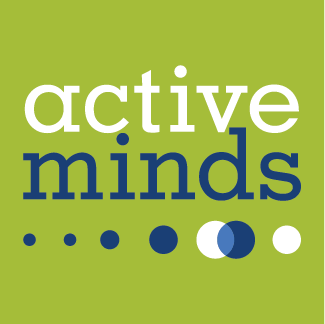June is Men’s Mental Health month! To be frank, mental illness among men is a public health concern that begs attention and should be addressed year-round. Here are just a few of the issues concerning men, especially while in college – all while studying and attending classes:
- Stress of being on your own, possibly for the first time
- Feeling homesick
- Having to adjust to roommates
- Making new friends
- Pressure to do well in class
- Financial issues
- Eating properly
- Alcohol/drug use
Along the way, you have numerous resources available to you. Family/friends at home, new friends, instructors, counselors, religious leaders, social media and clubs you may be interested in. I want to emphasize – You are not alone during this time in your life. It may feel so at times, but you have many people thinking about and pulling for you.
Can it all feel overwhelming at times? Sure, but the experience is preparing you for the future, while further developing your skills and habits to handle stress. A positive form of stress, called “eustress”, is good for us. It drives us to be better, to run faster, set higher goals and work towards them. It’s the bad stress, referred to as “distress”, that really needs our focus. What can occur if distress is not dealt with appropriately can manifest into a breakdown of both mental and physical health, including depression.
When it comes to the topic of depression, men suffer just as women do with this caveat…women tend to seek help far more than men. Our own masculinity can at times hurt us. We may think we are the toughest, most handsome, rugged individual there is, but this way of thinking can also inhibit us from seeking help. Asking for help, especially when it comes to our mental health, can be extremely tough for some people. I’ll share this fact with you, mental illness is as real as cancer. I’ve had both, and both can be devastating in their own ways. My cancer was testicular. If I had not gone to a doctor and advised him of strange nodules on my testicle, I would not be here, plain and simple.
The same could be said for mental illness for some people. But here’s the good news, most mental health related issues can be helped, either through therapy, medication or both. But first it’s up to you to acknowledge you may need help. Don’t discount what you’ve been feeling or what friends or family tell you. They are there for you and only have your best interests at hand. We all have those days where we just want to be by ourselves and read, watch tv, or just chill. But if you’re not feeling yourself for two or more weeks, consider seeing a counselor at your student health center right away. Here are a few of the signs/symptoms to watch for:
- Feeling sad throughout the day
- Feeling overbearing stress
- Thinking that you are a burden to people
- Feeling tired all the time
- Sleeping too much
- Ignoring or not enjoying activities you like
- Substance abuse
I’ll leave you with some ideas on how to make your college years more enjoyable. Make it a point to stay in touch with friends and family back home. Set aside time every week or two to touch base. There are many campus activities and clubs to participate in. Pick a couple that really peak your interest. It’s a great place to meet people because you are already like-minded in at least one aspect. If you have a roommate, be upfront about cleaning, noise, and visitors. Make weekends count! Get out and do something fun. Bicycle, hike, or gym activities are great ways to lower cortisol levels. Try white water river rafting, photography, or just hanging out with friends at a BBQ. This is your time to de-stress. Live, in person interactions can be so much better for you then phone calls or other means of communication.
But, be careful of phubbing, paying more attention to your phone then the person who is conversing with you. Yes, phubbing is a word. Words are just a small part of the whole communication package. Eye contact, tone, facial expression and body language help communicate what the other person is really trying to say. It does require focus and active listening skills to communicate effectively. And yes, it takes practice. I guarantee your social experience will far outweigh any on social media or phone. Don’t be a conversational coward. Get out there, make new friends and have that personal interaction face to face.
My very best to you all,
Kevin R. Briggs
Author: Guardian of the Golden Gate, Protecting the Line Between Hope and Despair







